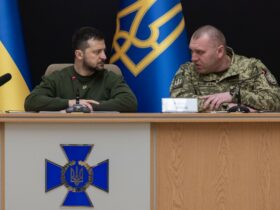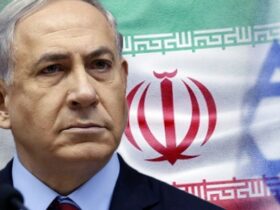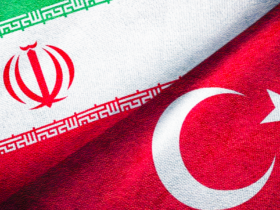One week after signing the US agreement with the Taliban in Doha, Kabul faced a serious political crisis ahead of the inter-Afghan peace talks.
It would seem that the most important political stage has already been passed – after many years of hard fighting, opposing parties have managed to reach a historic agreement which may get the negotiating process underway in Afghanistan and put an end to the longest war in US history, which has already cost thousands of lives and billions of dollars.
The US hopes through an agreement with Taliban movement to put an end to the two decades of conflict and bring 13,000 troops from Afghanistan home. US troops entered Afghanistan almost 19 years ago after the 9/11 attacks in 2001. This is the longest military campaign in US history. In the course of the war, more than 2,400 American soldiers have died.
As the Taliban and the US reach a peace deal, the Afghan government and its allies wonder what exactly it involveshttps://t.co/XOcxjemlrp
— TRT World (@trtworld) March 9, 2020
The historical agreement between US and Taliban is focused on these aspects:
-
The United States will withdraw from Afghanistan all military forces of the United States, its allies and Coalition partners, including all non-diplomatic civilian personnel, private security contractors, trainers, advisors and supporting services personnel within 14 months following announcement of this agreement, if the Taliban comply with the agreement.
-
After signing the agreement, intra-Afghan negotiations should begin between the Taliban and the Afghan government.
-
The Taliban will take the following steps to prevent any group or individual, including al-Qaeda, from using the soil of Afghanistan to threaten the security of the United States and its allies.
-
The United States is committed to start work immediately with all relevant sides on a plan to expeditiously release combat and political prisoners as a confidence building measure with the coordination and approval of all relevant sides. Up to 5,000 prisoners of the Islamic Emirate of Afghanistan known as the Taliban and up to 1,000 prisoners of the other side will be released by March 10, 2020, the first day of intra-Afghan negotiations.
However, Ashraf Ghani put the spanner in the works. Ashraf Ghani has rejected a Taliban demand for the release of 5,000 prisoners as a condition for talks with Afghanistan’s government and civilians .
At a press-conference in Kabul, he declared that only the government of Afghanistan, not the authority of the United States, can decide to release the Taliban prisoners.
“I have said many times to Khalilzad that we have no intention of doing so,” Ghani said. “The people of Afghanistan need to believe that we’ve gone from war to peace, and not that the agreement will be either a Trojan horse or the beginning of a much worse phase of conflict,” he added. But finally he agreed to release prisoners.
President Ghani's announcements that he will issue a decree that will allow for a significant exchange of prisoners & lead in forming a national negotiating team with broad support both provide momentum going into intra-Afghan negotiations. https://t.co/naAtcurKGf
— U.S. Special Representative Thomas West (@US4AfghanPeace) March 10, 2020
In addition, according to the US – Taliban deal, intra-Afghan negotiations should have occurred between the Taliban and the Afghan government by March 10, but the dispute over the results of the presidential election in Afghanistan had not even ended by this time. On March 9, dual power began in Afghanistan, despite the efforts of US officials and former Afghan President Hamid Karzai to put the two political opponents at the negotiating table. As a result, acting head of Afghanistan Ashraf Ghani and Abdullah Abdullah, Afghanistan’s chief executive officer, held two parallel inauguration ceremonies each declaring himself president.
US Special Representative for Peace in Afghanistan, Zalmay Khalilzad, and ambassadors of about 25 countries attended the inauguration of Ashraf Ghani – many other countries, however, including ambassadors from Russia, Iran and Turkey, did not attend the ceremonies at all. Ashraf Ghani announced that his government would be “the government of the entire people of Afghanistan”:
Abdullah Abdullah held a parallel ceremony in the White House, at the headquarters of the country’s chief executive, and after taking the oath, said: “I am a president and servant of the Afghan people.”
According to the Independent election commission of Afghanistan, on February 18, Ashraf Ghani Ahmadzai was declared the winner in the presidential election, receiving 936,000 votes (50, 64%). The commission announced that Abdullah Abdullah received only 720,000 votes. However, Abdullah Abdullah said that there had been voter fraud and refused to accept these results. Instead, he announced the formation of a comprehensive government under his leadership.
REACTION AROUND THE WORLD
The United States publicly supported Ashraf Ghani in the political race. Nevertheless, the two rivals made efforts to negotiate, but to no avail. On March 8, the United States called on both sides to forget about the election and think about the peace process that would follow the signing of an agreement with the Taliban.
“The Afghan people want peace. It is time to focus not on electoral politics, but on taking steps toward a lasting peace, ending the war with the Taliban, and finding a formula for a political settlement that can serve the interests of all of this country citizens through intra-Afghan negotiations we expect will begin in March”, said the US department of state in a special statement.
On March 10, the United States once again stated its opposition to the establishment of a parallel government in Afghanistan.
https://twitter.com/Saudi24N/status/1237216122182795270?s=20
A statement from the US Department of State reads as follows:
“We strongly oppose any action to establish a parallel government, and any use of force to resolve political differences.”
Meanwhile, Turkey, Iran and Russia, as important regional powers, did not react to the diarchy that had formed in Afghanistan and maintained their neutrality.
The Russian ambassador in Kabul was not present at any of the inauguration ceremonies. On February 20, the Russian Foreign Ministry expressed concern about the tensions over the outcome of the presidential election in Afghanistan and their negative impact on the course of the peaceful intra-Afghan talks, but did not express any sympathy for any of the candidates.
PEACEFUL NEGOTIATION PROCESS AND NEW CRISIS IN AFGHANISTAN
For millions of Afghans, the signed agreement with the Taliban is a chance for a peaceful life after four decades of wars and civil strife. The agreement should reduce the level of violence and settle the political crisis in Afghanistan.
The Taliban movement is represented at the talks by members of the political office from Doha. Although the “political office of the Islamic Emirate of Afghanistan” has a certain level of independence, it does not reflect the position of the entire movement, which has a rather complex network structure. Some leaders linked to Taliban group are in principle inclined to negotiate, while others oppose negotiations with the official government in Kabul. However, this is not the most important factor in postponing the peace negotiations.
Although there is not much time left before the start of the negotiations, the lack of political unity in Kabul seems to be of the greatest benefit to the Taliban.
The Taliban has a strong team of negotiators. They have attained political experience over eleven months of negotiations with the US. By now, Kabul has lost its political unity. The country is likely to face a situation of dual power.
Unfortunately, instead of forming the Commission for Peace Talks with the Taliban as soon as possible, Afghan officials have been divided in two fronts, creating obstacles to start of the intra-Afghan dialogue.
The US Special Representative for Afghanistan Zalmay Khalilzad said he will try to resolve the dispute between the two politicians:
I spent much of the last week trying to help Pres @ashrafghani and Dr. @DrabdullahCE come to an agreement on an inclusive and broadly accepted government. We will continue to assist.
— U.S. Special Representative Thomas West (@US4AfghanPeace) March 10, 2020
He expressed hope that both parties would be ready to negotiate:
In their remarks today, both leaders made clear that they are open to negotiations to end the political crisis and that peace and reconciliation is the priority.
— U.S. Special Representative Thomas West (@US4AfghanPeace) March 10, 2020
US Forces Afghanistan spokesman Colonel Sonny Leggett, during two inauguration ceremonies in the Afghan capital, announced that the US had begun the process of withdrawing its troops and that it would reduce it to 8,600 troops over 135 days.
“In accordance with the US-Islamic Republic of Afghanistan Joint Declaration and the US-Taliban Agreement, US Forces Afghanistan (USFOR-A) has begun its conditions-based reduction of forces to 8,600 over 135 days,” Leggett said in the statement quoted by US media.
“USFOR-A maintains all the military means and authorities to accomplish our objectives -including conducting counterterrorism operations against al-Qaeda and ISIS-K and providing support to the Afghan National Defense and Security Forces,” he added. “USFOR-A is on track to meet directed force levels while retaining the necessary capabilities.”
"The reduction in violence was a confidence builder. We're very serious about our obligations and we expect the Taliban will be serious about their obligations. The United States has been very clear about our expectations—the violence must remain low." – Gen. Scott Miller
— USFOR-A Spokesman Col Sonny Leggett (@USFOR_A) March 2, 2020
FORECAST
The political gridlock in the Afghan government has created a barrier to the start direct dialogue with the Taliban and the withdrawal of US troops from Afghanistan. This fact, in turn, poses significant challenges to the successful establishment of peace in Afghanistan.
The first step towards resolving this problem is to eliminate the political schism between Ashraf Ghani and Abdullah Abdullah, the main political figures in Afghanistan’s government. It is necessary for one of them to show wisdom and make concessions to the other for the common interests of the Afghan nation. The formation of a joint unified government between two opponents is the most likely and acceptable scenario, although the political course of events in Afghanistan is difficult to predict. It is important to understand that without a political alliance of all forces in Kabul, negotiating with the Taliban and preserving all the political achievements of the last 18 years will be impossible.
If the United States, ignoring the interests of the parties involved in the Afghan problem, gives the Taliban a sole right to govern Afghanistan, there will be a chance of creating a regional “resistance front.” This new coalition will be formed with the support of Iran, India and some countries of Central Asia. In the 1990s, these countries acted as patrons of the anti-Taliban forces, and it is possible that this scenario will be repeated in a different form. After the signing agreement with the United States, the Taliban is likely to lose support from some regional states, despite the fact that over the past two years Taliban has managed to expand their ties and establish relations with Iran, Pakistan, Russia, China, the Persian Gulf, Central Asia and even some European states.

















Leave a Reply